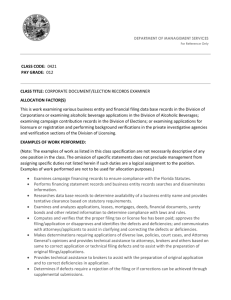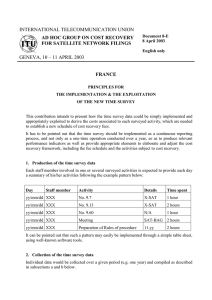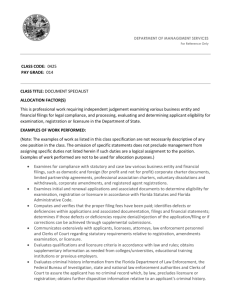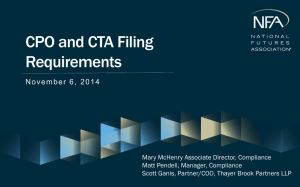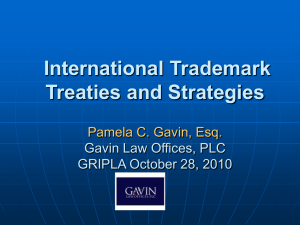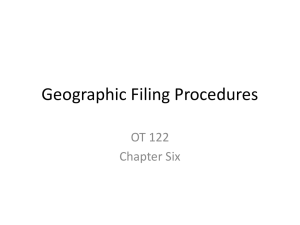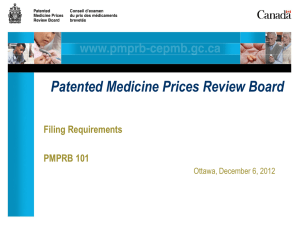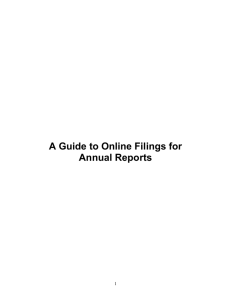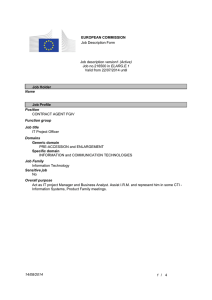slides
advertisement
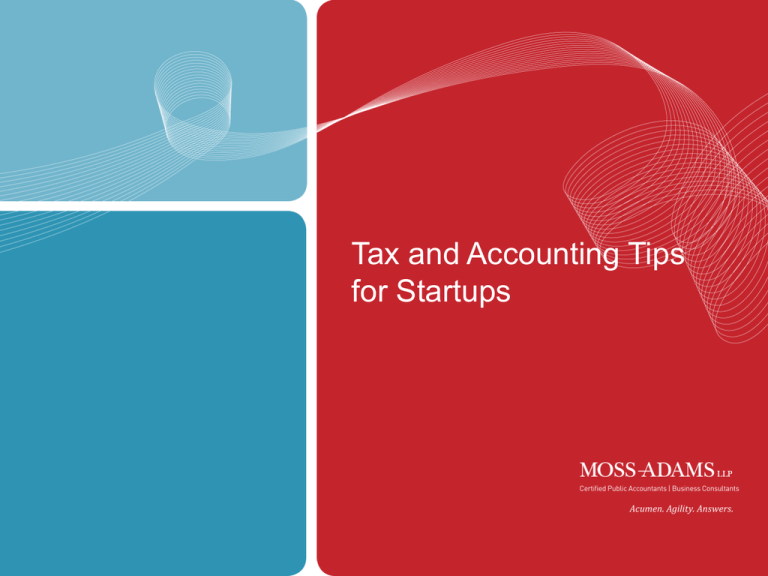
Tax and Accounting Tips for Startups 1 The material appearing in this presentation is for informational purposes only and is not legal or accounting advice. Communication of this information is not intended to create, and receipt does not constitute, a legal relationship, including, but not limited to, an accountant-client relationship. Although these materials may have been prepared by professionals, they should not be used as a substitute for professional services. If legal, accounting, or other professional advice is required, the services of a professional should be sought. 2 LARRY KAMMERER, PARTNER OUTSOURCED ACCOUNTING GROUP • Has practiced public accounting since 1985, focusing on venture-funded technology companies and high net worth individuals • Specializes in outsourced accounting and consulting for startup companies and personal CFO services for individuals • Frequent speaker at entrepreneur-focused events on the topic of creating and growing start-up businesses • Recognized by the American Institute of Certified Public Accountants as a pioneer in combining cloud-based technology with outsourced accounting services to transform the way companies and individuals solve their financial challenges larry.kammerer@mossadams.com 3 OVERVIEW • Which tax filings are due and when? • What do I need to do to get ready? • Where do I go for help? 4 WHICH TAX FILINGS ARE DUE AND WHEN? • Tax filings and due dates are driven by: o Business entity type o Where the business was formed and where it’s operating o The fiscal or calendar year end chosen for tax reporting 5 BUSINESS ENTITY TYPE • The most common entity types are: o Corporations (also called C corporations) Separate tax returns due on the 15th day of the 3rd month following the tax year end o LLCs can generally choose their entity type for tax filings: As corporations (see above) As partnerships - separate tax returns (practically) due on April 15th Single owner LLCs file as part of an individual tax return due on April 15th o S Corporations Separate tax returns (practically) due on March 15th 6 COMMON MISCONCEPTIONS • Delaware vs. California filing requirements • $800 California minimum tax • No entity type chosen • Failure to qualify for S Corporation status • Voluntary and involuntary changes of entity types within a single tax reporting year 7 WHERE THE BUSINESS WAS FORMED AND WHERE IT’S OPERATING • Many corporations are formed under the laws of the state of Delaware o That requires a separate “franchise tax” filing based upon capital structure, not “income” o Filing is done online: http://corp.delaware.gov/paytaxes.shtml • Must also file in any state where you are deemed to be doing business, whether registered there or not o States will definitely look for you if: You’re registered to do business in that state You’re withholding payroll taxes in that state 8 THE FISCAL OR CALENDAR YEAR END CHOSEN FOR TAX REPORTING • Was a choice made? o The tax reporting year end is established when the first tax return or tax return extension is filed o Declaring a year end on form SS-4 (IRS application for a taxpayer ID) is NOT binding • Can’t be more than 12 months from formation or first business activity (whichever comes first) • Might be able to use non-calendar year end periods to defer filing expenses and hassles • S Corporations, partnerships and LLCs filing as partnerships practically need to use a calendar year end 9 OTHER COMMON STARTUP TAX FILINGS • Delaware Franchise Tax—online return due March 1st regardless of tax reporting year end • Foreign ownership disclosures—don’t get hit with a $10K penalty • Payroll tax filings—hire a payroll service! • Estimated tax payments—due before year end if profitable or paying minimum taxes like California’s $800 • 1099s—due to some contractors by 1/31 and to the IRS as early as 2/28 • Property tax returns—must file by April 1st regardless of year end if over $100K of physical property or sent a form by the assessor’s office • San Francisco business tax returns: o Due 2/28 regardless of tax reporting year end o For SF based businesses with SF payroll of at least $150K o All SF based businesses must register, regardless of payroll size 10 OTHER TAX FILINGS • As your business grows, you may need to consider these tax filings: o Sales tax o Other state income tax returns o Foreign tax filings o Property tax filings—might be needed now if not before 11 WHAT DO I NEED TO DO TO GET READY? • Keep contemporaneous books and records: o It’s very hard to re-create good books after the year is already over. o Keep at least a simple of accounting of expenses incurred by type. o A simple accounting program, like QuickBooks, is helpful but only if you actually use it! A spreadsheet check register is not as good but certainly better than just bank statements. o Most tax returns will also require a balance sheet. QuickBooks makes this easy, spreadsheets do not. o You will also need a clear picture of the equity structure. (Who owns the company? How acquired? How many of what types of shares?) • Be aware of the filing due dates and get started well before them. • If needed, identify someone qualified to help well before you need the help. 12 WHERE DO I GO FOR HELP? • Moss Adams, of course! o Besides this presentation, we are also available for a complimentary consultation to privately discuss your specific situation. o If more formal help is needed you can engage our firm for business or individual tax assistance as well as accounting help. o Moss Adams is celebrating 100 years of service and over 25 years in the Bay Area primarily serving Life Science and Technology companies from startups through public companies. 13 THANK YOU 14
